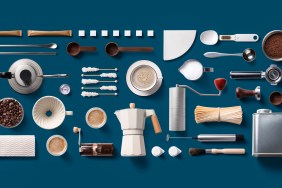We’ve all been there — you plop yourself in front of your computer or TV and before you know it, the box of Oreos sitting on your lap is empty. Mindfully eating at a slow pace is a huge challenge when multitasking is king, stress is high and few of us take the time to sit down and eat without distraction. Here’s a look at why you may want to consider making an extra effort to eat at a slower pace (and possibly invest in a HAPIfork to get the process started).
Digestion Begins with Chewing
When you chew, you’re breaking down food molecules into smaller particles. The smaller the particles, the more surface area they have and the more lubricated (with saliva) they are, which contributes to less stress on your digestive process. In fact, not only does saliva allow food to pass more easily through the digestive process, it coats the food particles with enzymes, which immediately begin to digest fats and starches. In essence, you’re preventing your body from wasting more energy and enzymes trying to break down food that wasn’t broken down properly in your mouth. Further, when you chew your food, the gastrointestinal system is also being alerted that food is on its way, triggering your stomach’s acid production, which in turn helps speed up the digestive process.
So how do you know when you’ve chewed enough? When you can no longer recognize what’s in your mouth based on its texture, you’re ready to swallow. See here for more specifics on how chewing affects the overall digestive process.
Nutrient Absorption
When you break down food into smaller particles, you’re making it easier for your intestines to absorb your foods’ nutrients and energy (this is why pro-juicers often tout the benefits of juice cleanses). An interesting study was published last year that showed that when people chewed almonds for a longer period of time, the smaller particles were absorbed into the system at a faster pace, allowing the body to retain more energy.
Less Bacterial Growth
When large particles of food are swallowed, it can cause bacterial overgrowth in the colon as food moves through the digestive process, which may result in indigestion, bloating and constipation.
It’s Good for Your Teeth and the Bones Around Them
Teeth are held together with bones and when you chew, those bones get stronger (see here for an interesting look at the effects of the rise of soft foods on our teeth). Further, the more you chew, the more saliva is produced and saliva works to clean food and bacteria from your mouth and in and around your teeth, all of which are key for preventing tooth decay.
Savor Food
Ever have that feeling that if you eat a bunch of cookies really fast, it’s almost as if it didn’t happen? It’s a subconscious mistake many of us make. Instead, slow down your pace and stop feeling guilty about your food choices; this will not only encourage better chewing, but will likely encourage you to eat less as you’re better able to savor your food. If you’re still having trouble, this would also be a good opportunity to try and figure out why you’re eating so quickly to begin with (e.g., are you stressed, crunched for time or maybe distracted?). Then ask yourself if there is something you can do about the situation.








